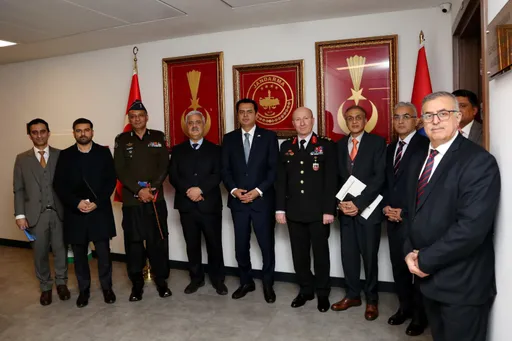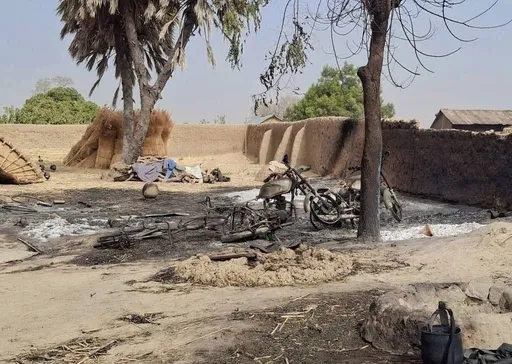By Firmain Éric Mbadinga
Public curiosity about salaries in general, and celebrity emoluments in particular, has spawned an entire genre of online portals focused on answering the question that etiquette demands one shouldn't directly ask.
If indeed "all work deserves a wage", surely the paycheck a country's President is entitled to cannot be spared such scrutiny either? Not in Africa, at least, where the salaries of leaders are rarely revealed.
The divulgence of presidential pay and public opinion on this are seen as symbols of transparency and good governance.
Given the nature of specific regimes in many African countries, the demand for transparency may not always be viable. In most instances, an unwritten code of silence mutes questions such as what the head of state earns — unless there is a voluntary disclosure.
In Gabon, for instance, junta leader Brice Oligui Nguema's October 18 announcement about forgoing his salary during the country’s transition period has rekindled curiosity about presidential pay beyond the public's positive reaction to his decision.
Fuzzy figures
Joëlle Samia Samognho, a political science graduate living in Libreville, believes it's somewhat of a taboo to ask what the President of the country is paid.
"You hit a glass ceiling on this issue. In our country, it is seen as wanting to know how much the head of the family earns. In any case, little information is available on the subject," she tells TRT Afrika.
Jacques Matand, a Congolese journalist, agrees. "Any question relating to the President's salary is governed by an omerta of sorts (law of silence)," he says.
While little information is generally available, Business Insider Africa, which specialises in financial issues, unveiled a ranking of the "top 5 best-paid African presidents" in August 2022.
According to this ranking, President Paul Biya of Cameroon had the highest annual salary at US $620,976. The King of Morocco ranked second with $488,604. Yoweri Museveni of Uganda gets $183,216 as his salary.
In West Africa, President Akufo Addo of Ghana and his Ivory Coast counterpart Ouattara topped the list, with the former reportedly earning a monthly salary of $6,300.
In Senegal, President Sall, who has only a few months left in power after giving up his bid for a new term, declared in April 2017 that he had issued a decree capping all salaries at 5 million CFA francs.
Like Senegal, some African countries are trying to define a fixed salary for their presidents and set terms for transparency.
In Gabon, a report drawn up in 2018 by Mays Mouissi, a Franco-Gabonese economic analyst who now heads the economy ministry, indicates that "in cumulative terms, a minister of state receives an average of 6.5 million CFA francs per month".
Ministers of state are also entitled to mission expenses when travelling within Gabon and abroad.
Dr Balla Doumbia, a teacher and researcher with a doctorate in law-oriented sociology, maintains that the difference in approach to the salaries of African presidents is because "in most constitutions, the salary of the head of state is not defined".
"To find out how much the head of state earns, you have to look at the legal framework," Dr Doumbia tells TRT Afrika.
"The President is considered an institution. In that case, to find out what the President's salary is, when we draw up the State budget, we consider all the elements that make up the services of the President of the republic."
This means that no finance bill contains any chapter devoted to the head of state.
"What we will see are only allowances. In the 1960s, after independence, heads of state were vested with several powers that were not always visible. On the political side, for example, a 'slush fund' was set up to enable the head of state to ward off foreign threats, and at the time, this was part of the head of state's salary," explains Dr Doumbia.
He cites the example of Mali, where heads of state were paid high salaries based on specific parameters categorised as "state secrets".
''With the advent of democracy in Mali in 1992, we had to sort things out. Those services classified as state secrets, including security services, were to be detached from the direct management of the head of state," says Dr Doumbia.
According to the teacher-researcher, the Finance Act, based on the organic law, fixes the salary of the head of state. This provision must first be examined by the Constitutional Court, which will assess its conformity with the Constitution.
"If the organic law of the presidency proposes bonuses or allowances that are exaggerated and that could jeopardise public spending, this organic law may be overturned," says Dr Doumbia.
Depending on the country and its internal organisations, the mechanism for defining the salary of president may vary and, in some cases, be kept away from the public, reinforcing the various interpretations, whether well-founded or not.























